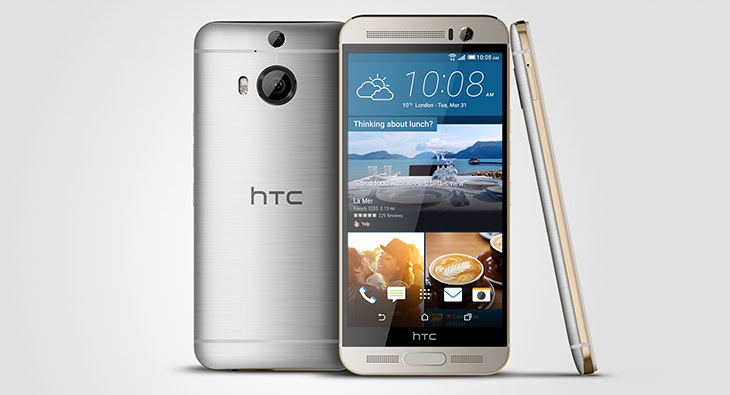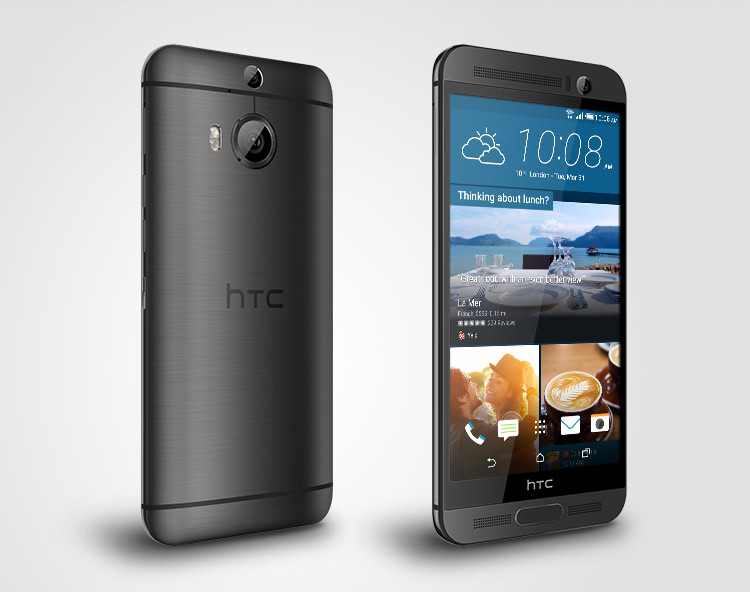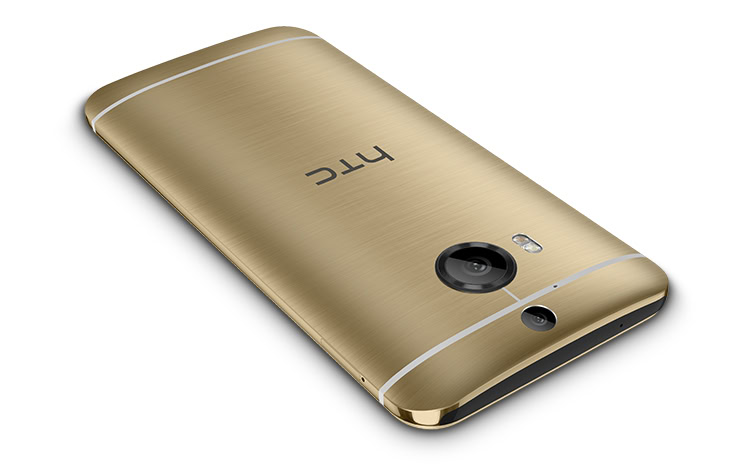Affiliate links on Android Authority may earn us a commission. Learn more.
HTC One M9+ official: 5.2-inch Quad HD screen, MediaTek SoC, fingerprint sensor

HTC today in Beijing introduced the newest member of the One family, the M9+, a larger M9-lookalike with a couple of key differentiating features.
The One M9+ features a 5.2-inch Quad HD LCD display (2560 x 1440), and not 5.5-inch, as some rumors have suggested. This makes it HTC’s second Quad HD device after the 5.5-inch One E9+, which was released just last week, and technically superior to the Full HD M9.

Inside, the M9+ features a 64-bit MediaTek Helio X10 (MT6795T) processor, with eight Cortex A53 cores running at up to 2.2GHz and integrated LTE, as well as 3GB of RAM.
Design-wise, the M9+ is very similar to the One M9, featuring the same two-tone silver/golden paintjob and similar styling. However, it will be easy to spot the M9+ out, thanks to two distinctive elements: the fingerprint sensor on the front and the Duo Camera on the back.

The fingerprint sensor is touch-based (no more swiping!), though its positioning and especially its Samsung-style appearance are a bit questionable. The Duo Camera on the back is comprised of a 20MP main shooter, along with a secondary depth sensor, just like on last year’s M8. Also like on the M8, the main camera is rounded, which arguably looks better than the square style on the M9. The front shooter remains a 4MP UltraPixel camera.
HTC has not revealed pricing or availability details, but it looks likely that the One M9+ will remain exclusive for China.
The One M9+ retains some of the other specifications of its smaller brother, including the BoomSound speakers with Dolby Audio enhancements and the 2840 mAh battery, though actual battery life will surely differ due to the higher density screen and different SoC.
The release of the M9+, even if it’s only pertaining to China, is a curious move by HTC. Releasing two very similar devices in quick succession is itself a questionable tactic, while the reasons for the adoption of the MediaTek processor are unclear.
Which device would you choose between the M9 and the M9+? Would you like HTCto make the M9+ available in more markets?